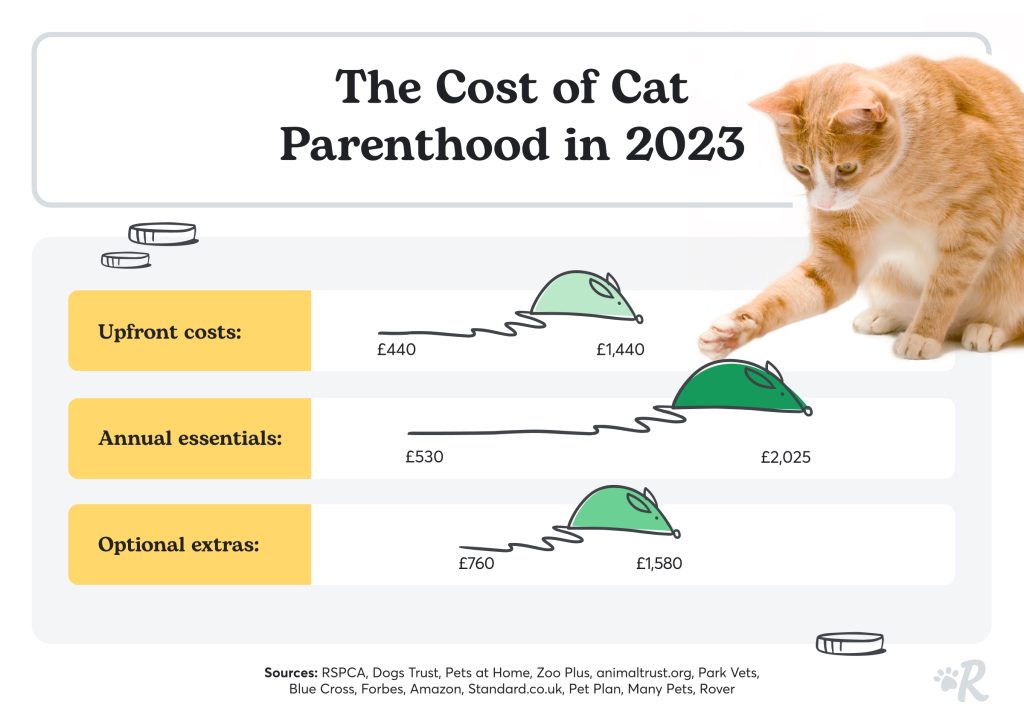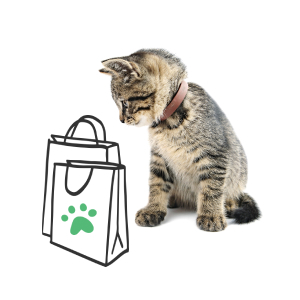Ready to bring home a furry feline friend this year? Before you sign those adoption papers, let’s check up on the costs of being a cat owner.
To make things easier, the team at Rover did the research, dove into the numbers, and interviewed experts to determine the range of costs for cat owners in 2023. Here’s what we learned:
Let’s break the cost of cat ownership down into three categories: upfront costs when you first bring your kitty home, annual essentials you’ll be buying every year, and optional extras that vary based on factors like your cat’s breed, age, and lifestyle.
In 2023, the upfront costs for new cat owners ranges from £440 to £1,440 to set your home and new pup up for success. Annual costs for the essentials, from cat food and toys to litter, range from £530 on the low end to £2,025 on the high end. Lastly, the optional extras cost most cat owners between £760 and £1,580 per year.



